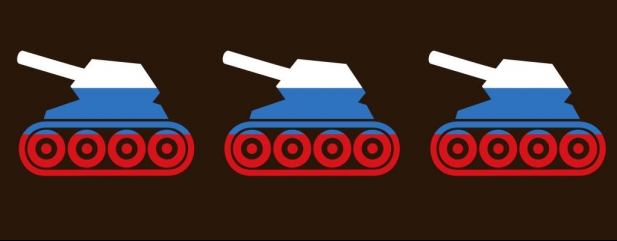Archived article
Please note that tax, investment, pension and ISA rules can change and the information and any views contained in this article may now be inaccurate.
What a Russian invasion of Ukraine might mean for markets

The tensions on the Ukrainian border may have eased slightly as we write but the situation remains highly febrile with Washington and London still warning of an imminent Russian invasion.
Historically war hasn’t agreed with the stock market, particularly in the short term. This makes sense given it is difficult for investors to factor in the impact of an armed conflict given the unpredictability over how other parties might react and exactly how the situation might escalate.
There was little love in the air on 14 February as Russian troops massed and the FTSE 100 endured its worst day of what has already been a volatile 2022 to date for the markets.
Oil prices hit seven-year highs and natural gas prices rose amid the tensions. A return of some of Russia’s military personnel to base took some of the heat out of the situation on 15 February as energy prices eased and stocks recovered.
However, the danger has not fully passed. InvestmentMetrics’ managing director Damian Handzy warns: ‘Quantifying the long-term market and economic impact of a full-scale Russian invasion of Ukraine to the geopolitical world order is fraught with uncertainty.
‘But it’s safe to say that Europe would dramatically increase its military spending, prioritise energy independence from non-NATO countries, and financial markets would take a hit with investors retreating to risk-off mode for the foreseeable future.’
War would likely result in further Russian sanctions which would disrupt trade and the supply of important raw materials. Almost 40% of the European Union’s natural gas comes from Russia and the country also exports significant quantities of commodities like palladium and titanium to the bloc. European banks are also major lenders to Russian individuals and corporations.
Firms like BP (BP) and Shell (SHEL) have joint ventures in Russia which could be impacted, while other UK-listed resources outfits like steel producer Evraz (EVR) and iron ore miner Ferrexpo (FXPO) have operations in Ukraine.
Ferrexpo shares fell substantially on 14 February, although this was mainly linked to it trading without the rights to a dividend associated with the demerger of its coal assets.
Russia-focused investment trust JPMorgan Russian Securities (JRS) is down 8.1% year-to-date and fell 2.1% on 14 February.
Travel stocks also fell sharply that day amid fears conflict might disrupt a sector just beginning to recover from the pandemic as Covid restrictions are lifted. Wizz Air (WIZZ), which is focused on Eastern Europe, was particularly affected.

Important information:
These articles are provided by Shares magazine which is published by AJ Bell Media, a part of AJ Bell. Shares is not written by AJ Bell.
Shares is provided for your general information and use and is not a personal recommendation to invest. It is not intended to be relied upon by you in making or not making any investment decisions. The investments referred to in these articles will not be suitable for all investors. If in doubt please seek appropriate independent financial advice.
Investors acting on the information in these articles do so at their own risk and AJ Bell Media and its staff do not accept liability for losses suffered by investors as a result of their investment decisions.

 magazine
magazine








